Related Research Articles
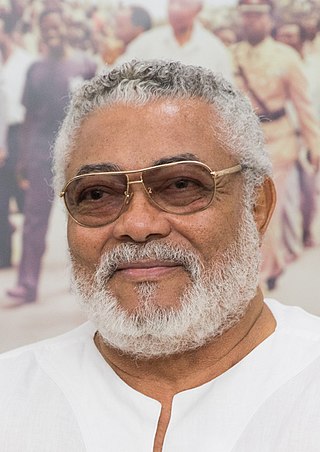
Jerry John Rawlings was a Ghanaian military officer,aviator and politician who led the country for a brief period in 1979,and then from 1981 to 2001. He led a military junta until 1992,and then served two terms as the democratically elected president of Ghana.
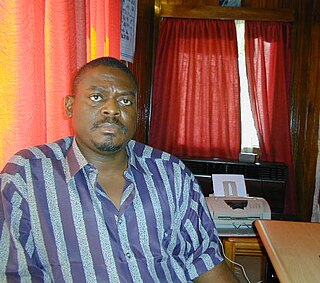
Major Johnny Paul Koroma was a Sierra Leonean military officer who was the head of state of Sierra Leone from May 1997 to February 1998.
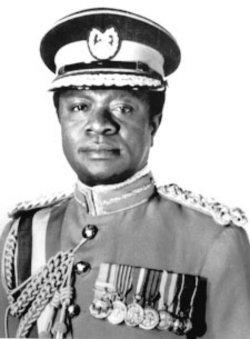
Ignatius Kutu Acheampong was a Ghanaian military officer and politician who was the military head of state of Ghana from 13 January 1972 to 5 July 1978,when he was deposed in a palace coup. He was executed by firing squad on 16 June 1979.
Lieutenant General Akwasi Amankwaa Afrifa was a Ghanaian soldier,farmer,traditional ruler and politician. He was the head of state of Ghana and leader of the military government in 1969 and then chairman of the Presidential Commission between 1969 and 1970. He continued as a farmer and political activist. He was elected a member of Parliament in 1979,but he was executed before he could take his seat. He was executed together with two other former heads of state,General Kutu Acheampong and General Fred Akuffo,and five other generals,in June 1979. He was also popularly referred to by his title Okatakyie Akwasi Amankwaa Afrifa and was in addition the abakomahene of Krobo in the Asante-Mampong Traditional Area of the Ashanti Region of Ghana.
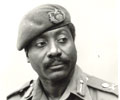
Lieutenant General Frederick William "Fred" Kwasi Akuffo was a Ghanaian soldier and politician. He was Chief of the Defence Staff of the Ghana Armed Forces from 1976 to 1978,and chairman of the ruling Supreme Military Council in Ghana from 1978 to 1979. He became leader of the government in a palace coup against General Kutu Acheampong,and was overthrown and executed in another military coup less than a year later.

The Supreme Military Council (SMC) was the ruling government of Ghana from 9 October 1975 to 4 June 1979. Its chairman was Colonel I.K. Acheampong. He was also the Head of state of Ghana due to his chairmanship.

The Armed Forces Revolutionary Council (AFRC) was the military Junta that seized power in Ghana from June 4,1979,to September 24,1979.
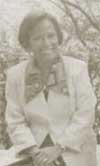
Gloria Adwoa Amon Nikoi, née Addae was as a Ghanaian diplomat who served as the Foreign Minister in 1979 under the Armed Forces Revolutionary Council (AFRC) government. She was the first Ghanaian woman to hold this position.
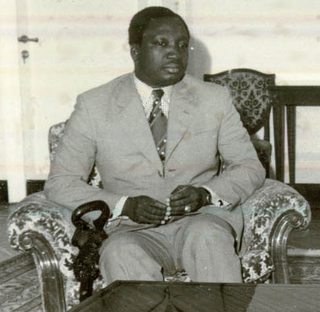
Colonel Roger Joseph Atogetipoli Felli was a soldier and politician who was once the foreign minister of Ghana.
Colonel Kwame R. M. Baah was a soldier and politician. He was the Ghanaian foreign minister between 1972 and 1975.
Major General Robert Ebenezer Abossey Kotei was a soldier,politician and track and field athlete. He was once the Chief of Defence Staff of the Ghana Armed Forces and also a member of the Supreme Military Council that ruled Ghana between 1975 and 1979. He was executed in 1979,following a military coup. He also held the Ghanaian high jump record for many years.

A referendum on the system of government was held in Ghana on 30 March 1978.
Major Kojo Boakye-Djan was a Ghanaian military officer and coup plotter. He is known to have planned the coup that brought Flight Lieutenant Jerry John Rawlings to power in Ghana on 4 June 1979 with other junior officers.
1970s in Ghana details events of note that happened in Ghana in the years 1970 to 1979.

Kwesi Armah was a Ghanaian politician and diplomat. He was the High Commissioner (Ambassador) to the Court of St. James in London,England,and the Minister of Foreign Trade in the administration of Kwame Nkrumah before the military coup of 1966. He later served in the Council of State in the government of John Kufuor.
The June 4th Revolution or June 4th Uprising was an uprising in Ghana in 1979 that arose due to a combination of corruption and perceived bad governance. This led to frustration among the general public and misunderstandings within the Ghanaian army.
Joachim Amartey Quaye was a Ghanaian politician. He was found guilty of involvement in the murder of four Ghanaian citizens and executed by a firing squad in 1982.
Rear Admiral Joy Kobla Amedume served in the Ghana Navy. He served as Chief of Naval Staff of the Ghana Navy from June 1977 to June 1979. He was appointed twice to this position first from May 1972 to January 1973 and then from June 1977 to June 1979.
Benjamin Kofi Amoah Forjoe was a Ghanaian police officer,diplomat and politician.
Kofi Badu was a Ghanaian politician and journalist. He served as a member of parliament during Ghana's first republic and a minister of state during the Supreme Military Council (SMC) era and the Armed Forces Revolutionary Council (AFRC) era. As a journalist,he was editor for various newspapers.
References
- ↑ Singh, Naunihal (2014). "6 Coups form the Bottom - Ghana, June 1979". Seizing power : the strategic logic of military coups. Baltimore, Maryland: The Scarecrow Press. pp. 162–170. ISBN 978-1421413365.
- ↑ "Sergeant Tasiri was the sole organiser of June 4 revolt, not Rawlings – Kwesi Pratt explains". GhanaWeb. 4 February 2021. Retrieved 30 March 2021.
- 1 2 "Former AFRC member testifies at the NRC". GhanaWeb. 11 December 2003. Retrieved 30 March 2021.
- ↑ "Ex-AFRC Member Beaten... For Breaking Custom". Modern Ghana. 22 November 2006. Retrieved 30 March 2021.